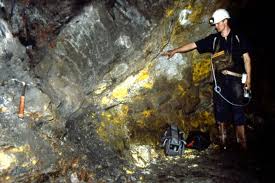
Introduction
Nuclear energy is gaining renewed attention as the world strives for cleaner and more reliable power sources. Among the innovative companies leading this charge is Oklo, a U.S.-based startup focused on revolutionizing the nuclear power landscape through advanced technologies. Their novel reactors promise to provide not only a sustainable energy alternative but also challenge the traditional perceptions surrounding nuclear power.
Oklo’s Unique Approach
Founded in 2013, Oklo differentiates itself by developing compact and efficient small modular reactors (SMRs). These reactors are designed to be safer, more cost-effective, and capable of generating significant electricity with a smaller footprint compared to conventional nuclear power plants. In October 2022, the company achieved a significant milestone by securing a permit from the U.S. Nuclear Regulatory Commission (NRC) for its compact liquid metal reactor, known as the Aurora.
Recent Developments
Oklo’s Aurora reactor is designed to be a 1.5-megawatt unit, which can power approximately 1,000 homes and is touted to operate on low-enriched uranium for a decade before requiring refueling. This long operational lifespan and autonomous operation are key features that make it a standout in the energy sector. Following the NRC approval, Oklo is working towards financing and building its first demonstration plant, targeted for deployment in the mid-2020s in various regions across the U.S. and potentially internationally.
Global Relevance
In light of escalating demands for energy and the pressing need to mitigate climate change, Oklo’s initiative represents a potential game-changer. Governments worldwide are seeking alternatives to fossil fuels, and as nations pledge to reduce their carbon footprint, nuclear energy—especially in the form of small modular reactors—could play a vital role in achieving these goals. The adaptability of Oklo’s technology positions it as a particularly appealing solution for remote locations or regions with limited power infrastructure.
Conclusion
The advancement of Oklo’s nuclear technology highlights a significant shift towards cleaner energy sources with the potential to reshape the future of power generation. If successful, their compact reactors could not only provide a dependable energy supply but also alleviate some public concerns associated with traditional nuclear power. As the world continues to prioritize sustainability, Oklo may emerge as a key player in the deployment of safe, innovative, and practical energy solutions. Regardless of the challenges ahead, Oklo’s vision represents an exciting frontier in nuclear energy innovation.



